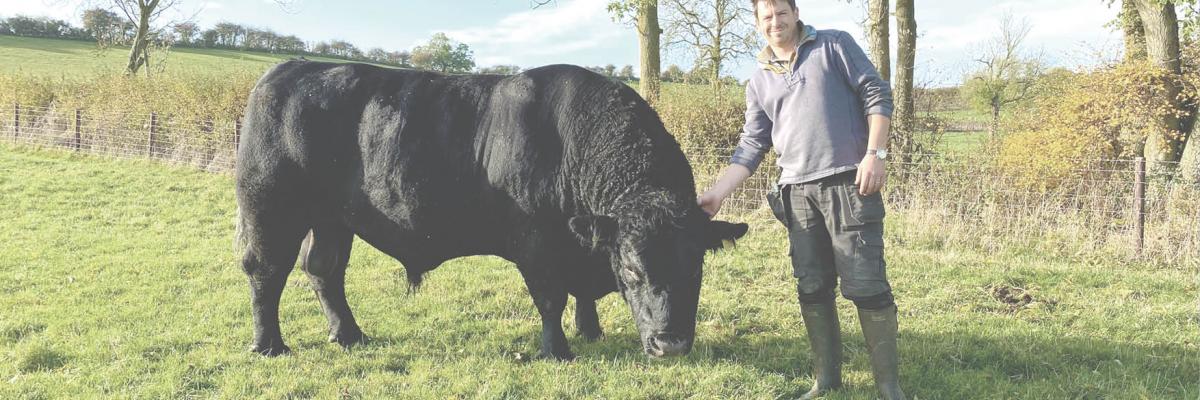
Use of complementary and alternative methods is significantly reducing antibiotic use and vet costs on UK and Irish farms
18 February 2022
A survey of over 220 livestock farms (80% commercial) in the UK and Ireland has reported up to 69% reduction in antibiotic use, up to 70% reduction in vet costs, significant reduction in disease frequency and severity, and 84% overall improvement in livestock health through the use of Complementary and Alternative Methods (CAMs). 24% of farmers report they have achieved and are maintaining zero antibiotic usage.
The survey was conducted by Whole Health Agriculture (WHAg), a not-for-profit organisation dedicated to programmes which develop and promote a whole health approach to farming and food. It was carried out between May 2020 and January 2021 through a questionnaire designed to capture quantitative data and the authentic ‘Voice of the Farmer.’
WHAg’s Head of Livestock Health Programmes, Chris Aukland, MRCVS, says “We now know that a CAMs approach can work really well; the famers’ experiences cannot be ignored. Given the current global environmental challenges, wholistic methodologies and practices are where the future lies for the sake of our collective health.”
Award winning organic poultry farmer Pammy Riggs stresses “It is worth looking at all alternatives to antibiotic use as we are fast heading towards the nightmare scenario of antibiotic resistance in human disease treatment. This is too important to ignore.”
Main CAMs used by farmers
- 88% of farmers surveyed use homeopathy
- 68% use herbs and medicinal plants (including herbal leys)
- 63% are using essential/plant oils
Dairy
67% of dairy farmers say their herds have lower disease frequency and reduced disease severity. As well as achieving significant reductions in antibiotic use, 69%, dairy farmers report significant improvement in the general health and wellbeing of their livestock, 90%. This has major potential for an industry increasingly moving towards ‘Produced Without Antibiotics’ and deserves to be treated seriously.
Dairy farmer Chris Gosling, who has successfully used alternative methods for years with significant reduction in antibiotic use, expressed frustration that previous researchers have ignored what she has been doing: “I was invited to take part in a mastitis study, but they wanted to discount my use of Homeopathy and Obsalim, so I declined.”
Figures on antibiotic and anthelmintic use in the UK
- £290 million is spent annually on veterinary medicines for livestock (National Office of Animal Health)
- £116 million of this (40%) is spent on wormers alone
- 30% of all antibiotics used in the UK are for farm animals. (The Veterinary Medicines Directorate)
This survey highlights the value of alternative approaches, and the voices of these experienced farmers should not be ignored.
The full survey report, including a comprehensive literature review is available here.
|
The video below is footage of WHAg’s presentation at the Oxford Real Farming Conference 2022, showcasing the results and detailing CAM approaches...
|
Lawrence Woodward writes of himself "I began my farming life in the early 1970s following the oil crises of those years. “How do we feed ourselves when the oil and other resources run out?” weighed heavily on me. For me the answer was organic farming. In 1976, I began to convert a family owned mixed, dairy to an organic system. The challenges involved in this led to my co-founding and then directing for 30 years the Organic Research Centre. Here, we developed an innovative research and policy programme; the Organic Advisory Service and farmer-based initiatives including the Organic Milk Suppliers Co-op and Organic Arable. My hands-on farming in those early years was milking our commercial Jersey herd. I became fascinated with the process of practical health management - not just looking for alternatives to antibiotics - but how all aspects of the farm and its management create health or dis-ease. Some things can be managed but there also has to be a mindset change in all those working on the farm. This is the focus of Whole Health Agriculture. I firmly believe the health of soil, plant, animal and man is one and indivisible and it can be a practical reality on all farms."

Whole Health Agriculture is a not-for-profit company limited by guarantee developing, promoting and educating farmers, health professionals and citizens in whole health approaches to food and farming. It was established in 2018 and has just launched a new Learning Centre for progressive farm education.
For further details contact:
- Lawrence Woodward, WHAg Chairperson: lawrence@wholehealthag.org
- Karen Seyersted, WHAg board member/ survey coordinator: karen@wholehealthag.org


